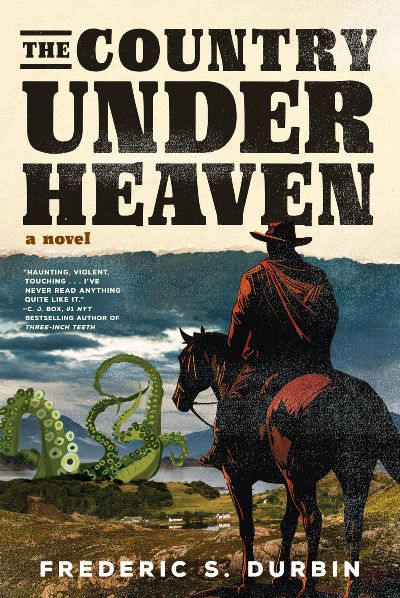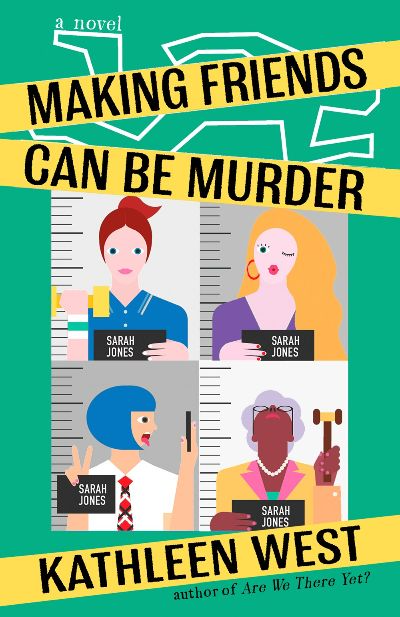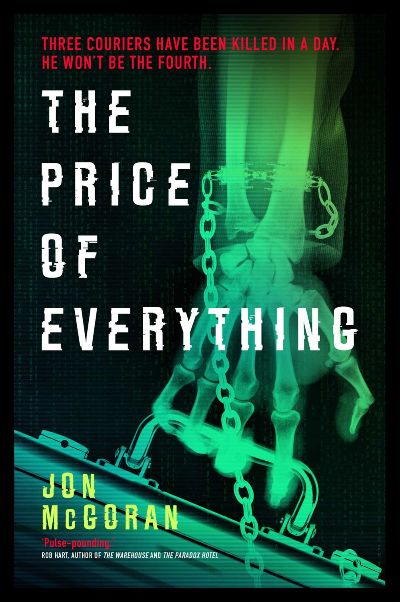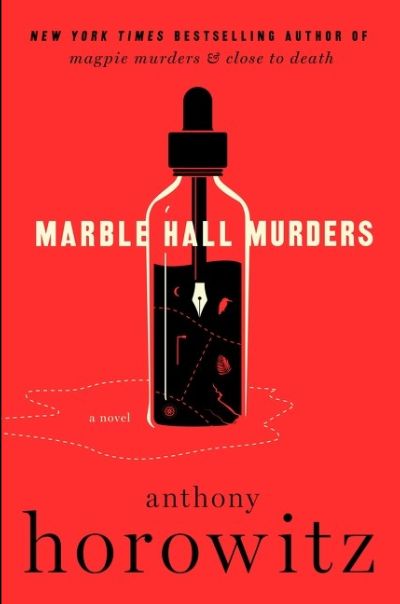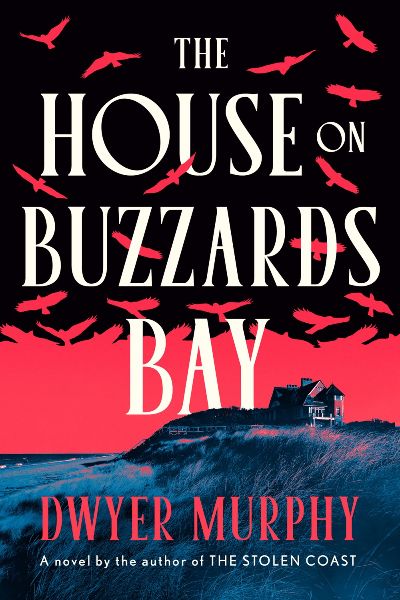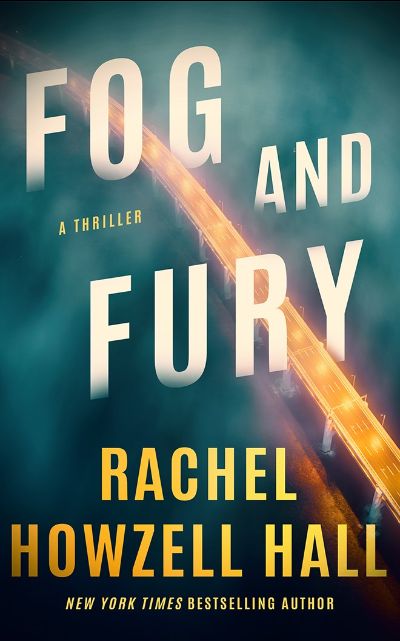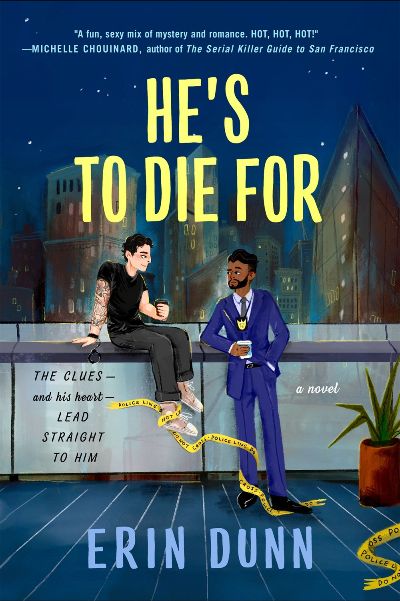Normally as I read a book for review, I mentally formulate the review. (Actually, at this point, even if I’m not reading for a review I do that.) But this time I couldn’t do this because this book shook me out of normal reading mode in the best way. It’s just extraordinary, combining elements that would seem to repel one another—historical fiction about the Reconstruction era, the supernatural, and a Western—but that form the most memorable story I’ve read in some time, with writing to match. The enigmatic main character here is Ovid Vesper, a cowboy who wanders the west from job to job, with his nomadic ways creating an episodic feel to the saga. He brings with him strange powers that started after he was injured at Antietam—a Civil War battle during which he believes he died and came back. He can see otherworldly beings now, and snatches of future events. At one long stop, he’s deputized by the sheriff of Lennox, Kansas, a war comrade, and mostly deals with small-town crimes but also with bandit gangs that terrorize the area. Topping them all though is the Craither, a huge, terrifying evil that appears when he needs it least, creating havoc in an era that needs none. Adding a touch of the normal is Ovid’s quaint romance with Nancy Mavornen and his helping a neighbor whose decisions make a shocking ending to this wild, wonderful story.
Book of the Week
We start this complicated plot with a clever ongoing fraud scheme in which a woman assumes the same name as another with a common name and a trust fund in order to steal the money. In Minneapolis, Sarah Jones has become part of a project of a Catholic highschooler doing penance for bad behavior, bringing together a bunch of women with this same name for regular coffee and conversation, making it ripe for this fraud. To avoid confusion, each member is identified by age rather than name. Thirty is our heroine; twenty-seven the thief. Added into the mix is a freshly minted FBI agent with his own secret agenda (not nefarious) and a cloistered nun with an unexpected background. A Sarah Jones, not part of the group, is found murdered, taking the fraud investigation to a new level. We have time spent in the woods, old crimes to solve, family connections, and a spot of romance. Confused? Don’t be. The story maintains its integrity and is enjoyable to the end with an interesting set of characters poised for what could be another book in the future.
In a future world where the delivery of goods is overseen by an organization called the Guild, a courier steps into a conspiracy. Armand Pierce’s job required him to have surgery to graft a titanium handcuff onto his wrist bone so that theft of an attaché case linked at the other end is physically impossible. Like the Domino’s Pizza guarantee of 30 minutes or less, the Guild promises a successful transaction or death for the courier if that person fails to deliver the package for any reason. When Pierce arrives with a package, he’s shocked to learn that the materials inside have vanished, and he’s forced to kill everyone in the room to stay alive. On the run, he has nowhere to go and nobody to trust. This ultraviolent and nonstop action sci-fi thriller delivers (no pun intended) all the goods. McGoran does a terrific job of worldbuilding, and readers will dig this blending of Blade Runner and John Wick. Is there a sequel coming?
There’s a whole lot going on in this new Susan Ryeland novel, starting with Susan’s dumping of her Greek boyfriend, subsequent return to London, and taking on a freelance editing gig. But if only things were that simple. The book Susan finds herself editing is a new novel featuring Atticus Pünd, a fictional detective from decades ago and the star of the Alan Conway books. (Many readers will be familiar with the two preceding books and if they aren’t, they should be: Magpie Murders and Moonflower Murders, written by the now deceased Conway and edited by Susan.) In this novel, Susan is caught up in a metafictional mystery, in which the novel from decades ago, featuring Pünd, becomes all tangled up with the contemporary story, which is written by Eliot Crace—whom Susan actually knows!—and again edited by Susan. Horowitz’s (Close to Death, A Line to Kill) whole book-within-a-book thing is wonderfully smart, and the onslaught of twists and red herrings moves the stories along briskly. Susan’s voice dominates: it’s funny, sarcastic, anxious, and tough. It would be foolhardy to try to recount this book’s plotting. Just be assured that this book is brilliant, sure to be one of the best crime novels of 2025.
Murphy likes to take lawyer characters out of their geographic and emotional comfort zones, and in this, perhaps his best book yet, he makes the discomfort both sharper and more nebulous than we’re used to. The author’s (An Honest Living) main character is Jim, who’s married to Valentina; they spend the summer in a house he inherited in Buzzards Bay, on the southeastern coast of Massachusetts. Before he met Valentina, he gave his tight pack of college friends shares in the home; over the years, they’ve summered there, some regularly, others rarely seen. This summer sees the return of several regulars and of Bruce, who hasn’t shown up in years. He brings with him a darkness that creeps over the old friends and becomes especially pronounced when the residents, in a nod to the house’s origins as a home for an occult group, holds a séance. A French woman who’s an ex of one of the gang, with her languid but also guarded ways, will be memorable for her strange manner. But all the characters and even the house will stay with readers, especially those who enjoy introspective language (“there was something petty, almost squalid, in not appreciating a friend’s beauty until she was holding it there before you”) and a slight tinge of the supernatural.
Lucky us suspense readers. If you don’t know Rachel Howzell Hall’s books, then this novel is one fantastic introduction. If you do know Hall, then you will be thrilled to learn that this is the first in a series, the Haven Thrillers series featuring Sonny, a former LAPD cop who has just moved to the idyllic community of Haven (along with her mother, who, with memory issues, is quite a handful). It was high time that Sonny got out of Los Angeles, and joining her godfather’s PI business in Haven—one vowel short of heaven—on the bucolic Northern California coast seems the perfect option. First job? Locating Figgy, a missing goldendoodle. In seeking out Figgy, Sonny comes across her ex-boyfriend, the super-rich Cooper Sutton, a powerful force in Haven. But it’s the discovery of 17-year-old Xander Monroe, one of only four African Americans in Haven, dead on a hiking trail, that really wakes up Sonny. Xander was a super-smart 17-year-old physics student and a star football player with a career at UCLA ahead of him. So why is no one paying attention to his murder? Sonny is one smart, tenacious, Black, woman with her own personal issues to fight against. Powerful social commentary and strong suspense make for one excellent novel.
What the world needs now is more LGBTQIA+ romantic and suspenseful fiction, and fortunately Erin Dunn’s He’s to Die For delivers just that. It’s totally head over heels when NYPD Detective Rav Trivedi (British born, Ivy League educated, Dad’s a Lord, suits are bespoke, get the picture?) can’t take his eyes off rock star Jack Vale, who is as talented a musician as he is super hot. But here’s the one flaw: Jack is the lead suspect in a murder case, and Rav is leading the investigation. Fortunately, Jack is able to clear his name, although both he and Rav remain cautious about hooking up thanks to the media onslaught, their own private natures, and the threat of violence that continues to surround them. Meanwhile the dialog snaps, the stakes are high, and the pacing pops. Give yourself a treat and get a copy of He’s to Die For, which miraculously succeeds as a romance as much as it is a suspense novel. Yes it’s early in the year, but this is already one of my favorite novels of 2025.
A gripping family story packed with tension, violence, and secrets that’s sure to enthrall Cosby’s legions of fans. It introduces the Carruthers clan of Jefferson Run, GA. The town, known to local kids and jaded adults as Jefferson Got the Runs, used to be prosperous, but “now all we make are orphans and widows.” In a gray area in that regard is Keith Carruthers, who might or might not be widowed. His wife hasn’t been seen for years; he’s the owner of a crematory; and locals think he killed and disposed of her himself. Now that he’s been the victim of a hit-and-run and is comatose, his grown children, Roman, Dante, and Neveah, may never know what happened to their mother. But that’s the least of their worries after rich, successful Roman returns from Atlanta to see his father and tries to help Dante, who’s in trouble with ruthless local gangsters. Roman is used to more than a little white-collar sleight of hand in his financial advising business, but is quickly far out of his depth in the evil underbelly of his hometown. “We all fall short of grace, but the beauty lives in the attempt,” says Cosby (All the Sinners Bleed, The Best American Mystery and Suspense 2024), neatly summing up Dante’s increasingly bloody helping hand and the family’s striving to love one another even when the world gives them every reason to give up.
A delightful, quirky, and comic foray into Parisian life that’s a clear homage to Hitchcock’s Rear Window (and the even earlier short story of the same name by Cornell Woolrich). Here, the dynamics include Nathalia Guitry, a successful photographer who, having witnessed a murder while taking pictures, is unable to work. She seeks help from Doctor Faber, who assigns her a creative task: to record the lives of the people in the apartment building across from her. Nathalia sends the stories to Doctor Faber via mail (she claims she can’t bear to watch him read them), vignettes that many readers will find to be the most fascinating parts of the novel. Eccentricity abounds as we encounter a lyricist, a life coach, and a well-known cartoonist; in its own surprising way, the Parisian building is reminiscent of Whitter, Alaska, where all residents live in one building, keeping a watchful eye on one another. Even the doctor has his own odd interests, from smoking to collecting keys. But what about that murder? Readers will appreciate racing through this brief novel to get to the other—very rewarding—side.
It’s loathing at first sight when trained opera singer Kit (stage name Katerina) Margolis meets her understudy, the sexually alluring Yolanda Archambeau, on the first day of rehearsals for Barbarella, a new opera based on the 1968 film. Kit, struggling to prove she is right for the titular role, her first leading part, is taken aback when her director introduces Yolanda to the cast, something not done until later in the rehearsal process. “I felt a flash of irritation, uncharitable yet valid. She didn’t need to be there. She shouldn’t be there.” Kit’s unease rises when Yolanda yawns during Kit’s big aria and later confesses her operatic ambitions, despite her lack of training. Regarding underhanded scheming, Eve Harrington (of the film All About Eve) has nothing on the ruthless Yolanda, whose weapons against Kit include poisoned tea and dead rats. But before her plotting can escalate to a deadlier level, Yolanda is fatally stabbed in her apartment. Kit, who briefly falls under suspicion because of a violent incident in her past, turns sleuth to uncover her late rival’s dark secrets and identify her killer. Offering an entertaining look at the backstage world of New York City opera, Richter’s second novel (after The Divide) skillfully mixes the tropes of a psychological thriller with the conventions of an amateur sleuth mystery. Especially compelling is Kit’s growing self-confidence as a singer and a woman as she pursues the truth.

